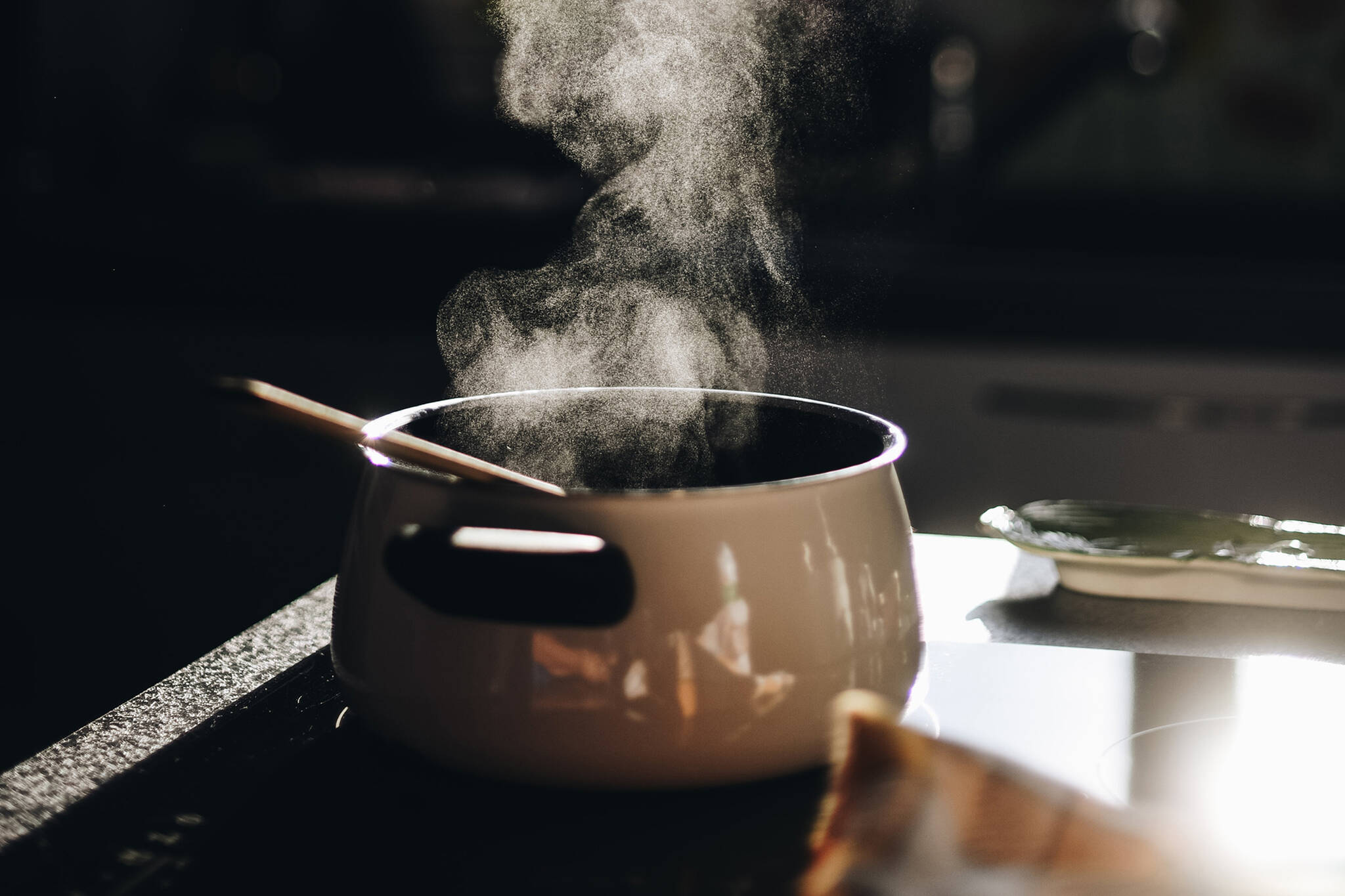By Peggy McKee Barnhill
There is a love triangle at my house, between parents, kids and food. It’s been going on ever since the kids were born.
Cooking with the kids comes in three flavors:
— Cooking for the kids: When the kids are young, parents cook for the kids. That’s the natural way of the world. A word to the wise parent—don’t expect any kind of gratitude or recognition for said cooking. You might be the most creative chef, cutting vegetables into sci-fi shapes so your kids can act out their favorite space fantasies at the dinner table. At the end of the meal, however, when they’re done leveling apple slice moons with their carrot swords, your kids are unlikely to eat either apple or carrot. Sorry. They may be young, but they can see through your ruse. And, they’re too young to clean up the dishes.
— Cooking with the kids: When the kids are into the double digits and take Life Skills in middle school, they may demand access to the home kitchen. Too young to fry solo, these rookie cooks need to be watched like a pot on the boil. Cooking with the kids is a sweet activity that has been enshrined in popular culture. Images of baking cookies with mom or grandma permeate our society, calling up feelings of serenity that are miles away from the gritty reality. Like toddlers in the “me do it” stage of development, middle schoolers know that they know best. They confidently shove the recipe aside, saying, “I can do it.” Little do they know that the only progress they’ve made since toddlerhood is an improvement in grammatical skills. They have no time for mom to teach them the difference between a teaspoon and a tablespoon—they’re both spoons, right? Burnt, salty cookies are often the result of that sweet afternoon of baking with mom. Don’t forget the inevitable mountain of dirty dishes at the end of the day.
— The kids cooking for you: When the kids somehow take in enough nourishment to grow into adulthood, they begin cooking for their parents. This is the real deal when it comes to a sweet experience. Yes, they still know best and charge forward with confidence that they can do whatever it is they want to do. The main difference is, they actually can.
The role of the parent in the kitchen cooking with their adult child is a dicey one. You want to step back and become the sous-chef rather than the executive chef, but it’s a challenge to take direction from someone who once would have starved to death if you weren’t there to cut the crusts off their sandwiches for them. Then, if your child turns out to be a better cook than you are, you may find that it is your ego, not the eggs, that’s taking a beating.
In my case, my three adult children share tips and techniques in the kitchen with me. They each have their signature dishes that have become favorites for the whole family. I have learned the delights of avocado toast, the best way to cut up an onion, and the proper spices to use when making curry. I try to bite my tongue when my kids do things differently than I do in the kitchen. For instance, when they use a recipe, more times than not they follow it off their phone. Cookbooks and hand-written recipe cards have gone the way of Webster’s Dictionary in my house. I cringe at the thought of that expensive little device getting splashed with spaghetti sauce or fried by close proximity to a red-hot burner. Natural consequences are all well and good, but does that go for iPhones as well?
The best part of having the kids cook for me is, of course, eating a home-cooked meal that I did not make. Food always tastes more flavorful when someone else cooks it. (This is literally tru — they use more spices than I do). The downside is our family’s division of labor conventions: if you cooked supper, someone else does the dishes. It’s an unwritten law.
Dinner was delicious, but it’s time to wrap things up here. I’ve got a mound of dirty dishes to do.
• Peggy McKee Barnhill is a wife, mother, and author who writes cozy mysteries under the pen name “Greta McKennan.” She likes to look at the bright side of life.

